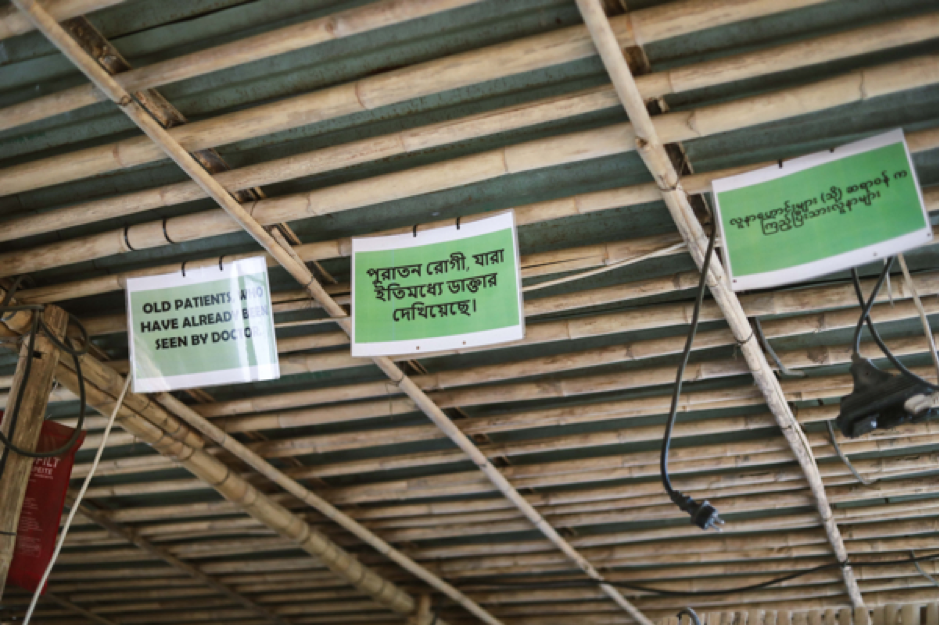The Core Humanitarian Standard Commitments are now available in plain English
By Kate Murphy (Plain-language Adviser, TWB) and Ellie Kemp (Head of Crisis Response, TWB).
Translators without Borders (TWB) helps its humanitarian partners apply plain-language principles to written content. We worked together with the CHS Alliance to develop a plain-language version of the Core Humanitarian Standard’s Nine Commitments.
As humanitarians, we use tools like the Core Humanitarian Standard on Quality and Accountability (CHS) to hold ourselves accountable to the people we assist. We know that the best responses are those shaped by those directly affected. The CHS provides a great opportunity to institutionalise Accountability to Affected Populations in a way that effectively translates at field level for our work.
But ironically, many of the people we assist themselves aren’t yet aware of our commitments to them. Many don’t have the literacy skills to read, understand, or react to them. Others simply won’t have the time, motivation, or emotional energy to read through the full Nine Commitments of the CHS.

Teacher writing sentences in Rohingya Zuban (Hanifi Script). Kutupalong Refugee Camp near Cox’s Bazar, Bangladesh. Photo: Eric DeLuca / Translators without Borders
The question for CHS Alliance was how to make information on quality and accountability accessible to the affected population. Could plain language help everyone to hold aid organisations to account, in line with CHS Commitment 4? TWB jumped at the chance to help with this. For us, it was another opportunity to highlight the importance of communicating with people in an appropriate and usable language and format.
Everyone appreciates plain language
Plain language makes text easier to understand, easier to put into practice, and easier to recall later. For English materials, such as the new CHS onepager, this means using plain-English. Non-native English speakers appreciate it, especially those with limited education and limited English language skills. But highly literate speakers also benefit, especially those operating in high-pressure environments. And of course, it makes translation easier too.
That’s the thing about plain language: everyone who appreciates clear, concise information benefits from it.
Plain language reduces that reading effort for everyone.
To make the CHS Commitments easier to read, we helped the CHS Alliance apply three established plain-language principles:
- Use personal pronouns, including “you” and “we.” That engages readers and adds certainty about who is responsible for different actions.
- Rewrite sentences so they contain fewer than 20 words. Shorter sentences are easier to comprehend.
- Replace uncommon or technical terms with alternatives that are familiar to all readers.

Photo credit TWB.
We used word-frequency data to identify words in the CHS Commitments that occur less commonly in English print and audiovisual media. The more frequently a term occurs in different media, the more likely it is to be familiar to readers. So, we replaced less frequent words with more common alternatives. For instance, we replaced ‘assistance’ with ‘support’.
Some words like “resilient,” “entitlements,” “competent,” and “efficiency,” are included in the original CHS Commitments, and experienced humanitarians are likely to comprehend them easily. However, word-frequency data suggests that they may reduce reading speed and therefore reader engagement for people who are less familiar with them. Because we wanted to reduce general reading effort, we replaced them.
Spread the word
CHS Alliance members and partner organisations can access the plain language English version of the CHS commitments. Over the coming months, the CHS Alliance expects to provide translated versions in an increasing number of languages and will keep you updated on progress.
In the meantime, CHS Alliance members who are part of the new AAP Community of Practice have suggested various ways we could use the plain-English version to communicate our commitments more effectively to affected people:
- Provide an audio version of the plain-English commitments for less literate audiences.
- Develop graphics to accompany the text and make it available as a poster or leaflet.
- Develop a child-friendly version.
- Provide staff with guidance on how to use the plain-English version as part of accountability to affected populations.
- Agree a common way to track understanding of the plain-language versions, possibly as part of regular perception and satisfaction monitoring activities.
We’re excited to see how the new plain-language CHS will help make accountability a reality for all those we serve.
What do you think?
To get involved with the CHS Alliance’s AAP Community of Practice – a member-only space to learn from each other, and exchange ideas and good practice – please get in touch with AAP Manager, Geneviève Cyvoct.
